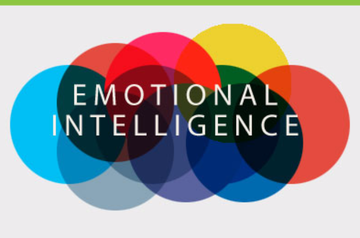Managing The Way To Success Through Emotional Quotient
Treesa Thomas, 37, is miss compassionate, with a strategic intent, a creative edge, and works in the marketing division of a large IT organization. She heads a team of 10, and just got promoted to senior level. She was the most potential candidate to be promoted as believed by the top management. But, with the new assorted designation, she got off-beam and lost focus of the weighted responsibilities and increased political pressures. She started mirroring her counterparts, losing her psyche and magnetism. Nishith, the marketing director observed this and called Treesa for a meeting. Nishith told Treesa that her performance was declining and she was losing her dominion on team. The feedback wasn’t pleasing, but she was wise enough to ponder over it, and consider recommendations for the same.
There are many like Treesa, who with greater accountability loose track in the moment, often getting trapped in their work, and find dealing with people, changes or communicating cumbersome. What Treesa needed was recovering her Emotional Quotient balance, and gaining back the leadership momentum. OKUR!
Wait did you just read Emotional Quotient, that too in relation with work?
Yes, you did. Emotional Quotient (EQ) is the most under-rated yet reverberating phrase of the millennium. Emotional Intelligence is the sine qua non for success in long term.
The concept of EI has evolved over the time, from the incepted idea of social intelligence back in 1930's to the begot notion of emotional strength in the mid-20th century to its swinging expression of today emotional intelligence.
Call it whatever, EI in dilettante terms can be described as:
Recognize and comprehend one's emotions and responses--Self-awareness
Dealing with and controlling emotions, moods and reactions--Self-management
Tackle emotions and feelings to motivate oneself to take suitable action, entrust, follow-up and work towards accomplishment of goal--Motivation
Perceive the feelings of others, understand their emotions and apply the comprehension to relate to others effectively--Empathy
Develop relationships, relate with others in social circumstances, negotiate, manage and work as a team--Social Skills
An individual with a high EQ is better with perceiving emotions, understanding them, and managing them, as compared to others. According to a recent study by Ernest O’Boyle Jr. at Virginia Commonwealth University, emotional intelligence is the strongest predictor of job performance. She efficiently uses her cognitive skills to unravel emotional problems easily, and is affluent with communication and comprehension intelligence. The high EQ individual, relative to others, is less apt to engage in problem behaviours, and avoids self-destructive and negative actions.
Emotional Intelligence is made up of 4 elemental skills that can be categorized under two heads: Personal competence, and Social Competence.
An individual can measure and analyze himself in these dimensions to get an understanding of his self.
The next question buzzing in your mind: Is IQ and EQ the same thing and can be used interchangeably? The answer is NO. Academic aptitude (IQ) is not correlated with how people perceive and manage emotions of self and the emotions of others (EI). Another interesting factual difference is that IQ is stable over lifetime and does not change, for a person; it was same at the age of 16 and would remain same at the age of 66. However, EQ is that intangible component that is flexible in nature and can be developed over time.
Now that we have understood the concept of EQ, let us figure out why is managing EQ significant?
-
Health is Wealth: Overall wellness of an individual is impacted by the ability to take care of one's bodies and managing stress which is directly linked to emotional intelligence. EI also impacts one's attitude and perception in life. The higher the awareness on emotional state and ability to cope with stress and anxiety, the better the health management and a positive outlook.
-
Lasting Relations: With better understanding and management of emotions, one is able to communicate the feelings in a more constructive manner. Comprehension of the needs, feelings and reactions of those in relations, leads to stronger and a more gratifying bond.
-
Key to success: Higher emotional quotient helps to reduce the procrastination and allows one to act as a self-motivator, enhance the self-confidence, and improves the ability of concentration. An emotionally strong individual can form better support network, overcome hurdles smoothly, persevere with resiliency. As per a research study done by Carnegie Institute of Technology, 85% of one’s financial success is due to skills in “human engineering,” one’s personality and ability to communicate, negotiate, and lead, whereas, contribution of technical knowledge is only 15%
-
Leadership: An individual with a higher EQ makes a better leader, as he develops the ability to understand what motivates others, relating with them in a positive manner and building stronger bonds in workplace. Building stronger teams is directly proportional to the EQ of savvy and intelligent leader, where she strategically utilizes the emotional diversity of the team mates towards achieving a synergistic result.
In short, the figures are conveying a persuasive story of how significant is EQ for an individual’s success in personal and professional field. This in no sense purports that IQ and technical skills do not have an implication, but the connotation is that the platter is incomplete without EQ.
And the good news is that emotional intelligence can be learned with right motivation and willingness and concerted effort. The process is not easy and time taking, but self development efforts and support from reliable ones, make the progression work.
DO GOOD FELLAS! You now have the key to career success.
















